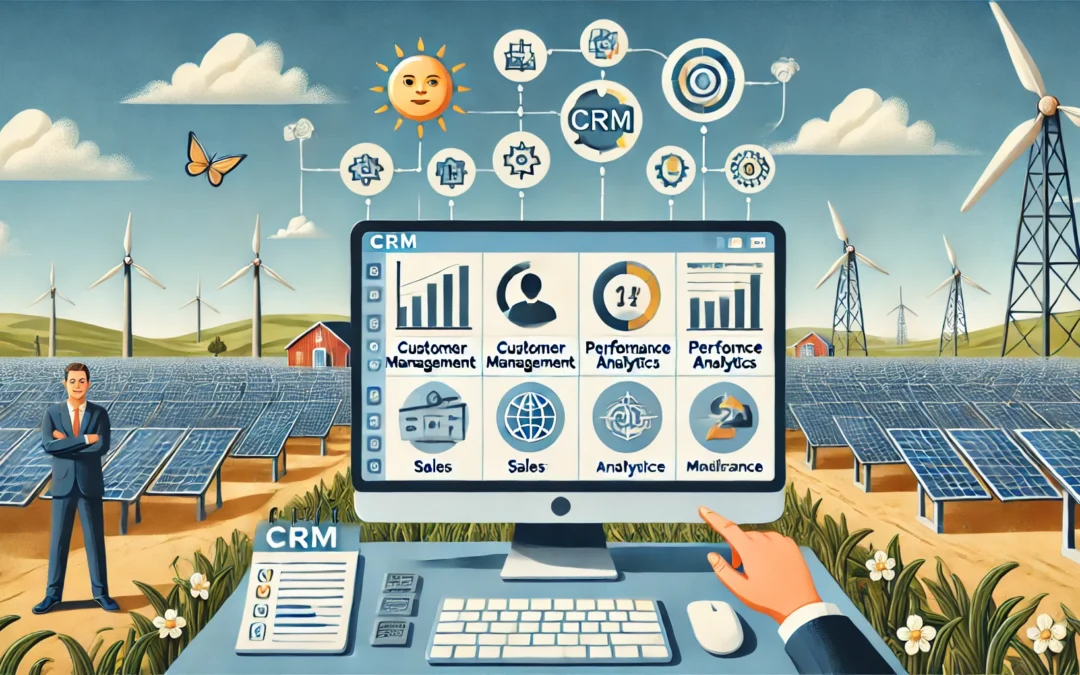A Customer Relationship Management (CRM) system can be highly beneficial for solar farm owners, helping them streamline operations, manage customer interactions, and optimize sales processes. Here’s how CRM can benefit solar farm owners:
Centralized Customer Data Management
A CRM acts as the central hub for storing customer information, from initial inquiries to ongoing service records. It keeps track of interactions, preferences, and transaction history, ensuring a personalized experience for farmers, agricultural businesses, and government stakeholders using agriculture solar solutions.
Example: If a client prefers email updates and previously inquired about panel upgrades, your team can proactively reach out with personalized offers.
Streamlined Lead Management for Expansion
For solar farm owners aiming to scale, a CRM provides full visibility into the sales pipeline. From initial inquiry to signed contract, you can track every step, prioritize hot leads, and improve conversion rates.
Pro Tip: Tag leads by interest (e.g., residential solar, commercial installations, EPC partnerships) for targeted follow-up campaigns.
Project Management:
CRM software can integrate with project management tools, enabling solar farm owners to manage installation, maintenance schedules, and new projects more efficiently. This helps in ensuring timely project completion and customer satisfaction.
Enhanced Customer Support:
Solar farm owners can use CRM to provide better after-sales support. With service history, warranties, and customer feedback stored, support teams can resolve issues faster, improving customer satisfaction and retention.
Performance Monitoring and Reporting:
CRM systems allow owners to monitor the performance of their sales and customer service teams through dashboards and reports. This data can guide decisions about marketing strategies, resource allocation, and customer targeting.
Automation of Routine Tasks:
Routine processes like invoicing, sending maintenance reminders, and follow-up emails can be automated in a CRM system. Automation saves time, reduces errors, and ensures no customer is overlooked.
Data Analytics for Strategic Decisions:
CRM systems offer insights through data analytics, helping solar farm owners identify trends, forecast sales, and optimize operations. This allows for better planning and decision-making based on reliable data.
Enhanced Collaboration:
CRMs allow teams within the solar farm business to collaborate effectively. Sales, marketing, and technical teams can access the same customer data, reducing miscommunication and improving coordination.
Regulatory Compliance Management:
Solar farms must comply with various regulations and incentives related to clean energy. A CRM can track compliance deadlines, policy changes, and customer eligibility for government schemes, making it easier to manage regulatory requirements.
Better Financial Management:
CRM systems can integrate with financial software, helping track payments, generate invoices, and manage financial reports. This reduces manual errors and ensures timely billing and collections.
By leveraging a CRM system, solar farm owners can enhance customer satisfaction, improve operational efficiency, and drive growth, ensuring long-term success in their business.

